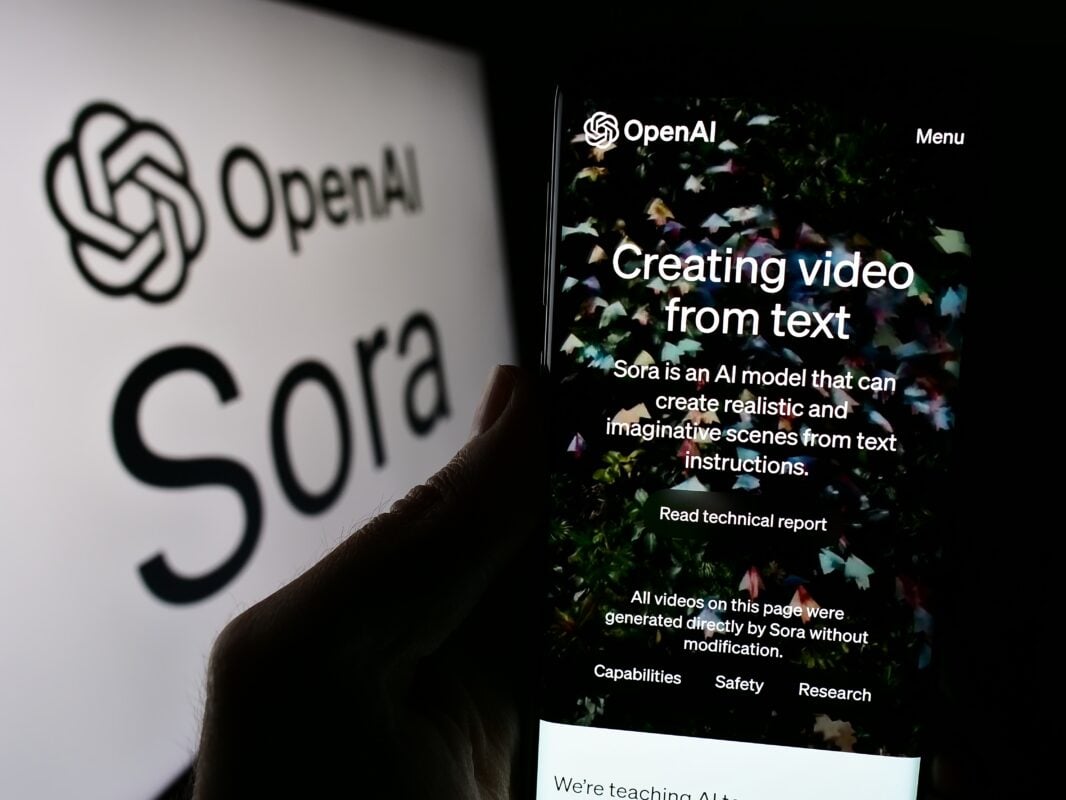TLDRs;
- OpenAI’s new Sora app generates anime-style videos, sparking copyright alarm in Japan’s animation industry.
- Japanese companies are negotiating with OpenAI to restrict use of copyrighted anime and manga content.
- Legal experts warn that sharing AI-made anime resembling real characters could breach Japan’s copyright laws.
- The case mirrors Japan’s growing legal resistance to AI misuse, following Yomiuri’s lawsuit against Perplexity AI.
OpenAI’s latest creation, the Sora app, has ignited a firestorm in Japan’s anime industry. The tool, designed to generate realistic videos using artificial intelligence, has drawn sharp criticism from Japanese animation studios and copyright experts who claim it blurs the line between creativity and infringement.
Sora allows users to create anime-style clips that resemble popular characters from iconic series, often without authorization.
On social media, users have shared mashups where heroes from Dragon Ball, One Punch Man, and Pokémon interact in uncanny AI-generated scenes. While many find these creations entertaining, Japan’s tightly controlled anime industry views them as a direct threat to intellectual property rights.
Japanese Studios Demand Protective Measures
Major Japanese animation and manga companies are reportedly negotiating with OpenAI to restrict the use of copyrighted materials within Sora.
The move mirrors actions by American entertainment giants such as Disney and Marvel, which have already requested that OpenAI block users from recreating their content.
Legal experts warn that once AI-generated content too closely resembles protected characters, OpenAI could face liability under Japan’s Copyright Law.
“There is the possibility of a judgment about illegality for allowing the transmission to the public of copyrighted material without approval,” said Tatsuhiro Ueno, a copyright law professor at Waseda University.
Ueno noted that private use of AI-generated anime may not breach the law, but once users post such videos online, the situation changes dramatically.
“Uploading these creations effectively broadcasts copyrighted characters without consent,” he added.
A Broader Crackdown on AI Copyright Breaches
This confrontation echoes earlier legal tensions in Japan. In August, the Yomiuri Shimbun filed a landmark lawsuit against Perplexity AI, accusing the U.S.-based startup of reproducing over 100,000 news articles without permission. The Tokyo District Court case, demanding 2.17 billion yen ($14.78 million) in damages, marked Japan’s first major legal strike against an AI company for copyright violations.
That precedent looms large over OpenAI. Experts say Japan’s courts may soon be tested again, this time over the cultural crown jewels of its anime industry. Kensaku Fukui, a Tokyo-based lawyer specializing in IP law, warned that Sora could “inflict significant harm on content companies if users generate viral AI videos that create market confusion between authentic and AI-made works.”
Several Japanese firms have reportedly already reached agreements with OpenAI to block use of their copyrighted material, though OpenAI has not issued an official response to Japanese media inquiries.
Balancing Innovation and Cultural Heritage
The controversy underscores a growing global debate about AI’s impact on creative industries. While OpenAI’s Sora demonstrates the transformative power of generative models, it also exposes how easily technology can mimic sotbeloved artistic traditions.
For Japan, where anime and manga are not only cultural exports but billion-dollar economic engines, the implications are profound. The fear is that without strict oversight, AI tools like Sora could dilute artistic integrity, undermine licensing revenue, and confuse audiences about what’s real and what’s AI-generated.






